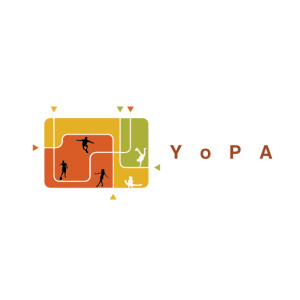 \
&
Contact us
\
&
Contact us
 \
&
Contact us
\
&
Contact us
Partnership website: https://eitrawmaterials.eu/
Developing raw materials into a major strength for Europe
Minerals, metals and advanced materials are key enablers of the green and digital transition. Raw materials are critical to preserving the global competitiveness of the EU’s most strategic economic sectors. They are fundamental for the EU to develop its strategic autonomy and to re-industrialise key European ecosystems.
Today, only a fraction of the most relevant raw materials is produced in Europe. This can be changed through a circular economy approach, through innovation in recycling, substitution, processing, mining, and exploration. It is the objective of EIT RawMaterials to secure a sustainable raw materials supply by driving innovation, education, and entrepreneurship across European industrial ecosystems.
The general objective of this innovation community is to enable sustainable competitiveness of the European minerals, metals and materials sector along the entire value chain by driving innovation, education and entrepreneurship. This is mirrored in the fact that the members and partners involved are active along the entire value chain so from exploration, mining and mineral processing to substitution, recycling and circular economy.
The approach of this innovation community is to integrate knowledge from industry, higher education and research (knowledge triangle) by engaging stakeholders from the entire raw materials value chain. Similar to other innovation communities there are 5 main programmes: innovation, education, business creation, regional innovation schemes and cross sectoral innovation.
In terms of innovation, the focus is on increased resource efficiency and the improvement of processes and products, support the introduction of new technologies and rethink the current linear economic model to move towards a circular approach.
There are several types of innovation projects.
Find out about the latest opportunities offered by EIT RawMaterials, from funding for start-ups and projects, to exciting education programmes, that will all contribute to Europe reaching climate neutrality by 2050.
The EIT publishes regularly calls for proposals for the different programmes. You can find out the opportunities and latest news at the webpage of the innovation community https://eitrawmaterials.eu/ or https://eit.europa.eu/our-communities/eit-rawmaterials
The HQ is based in Berlin but there are many regional hubs spread over Europe. One of them is located in Leuven: tel. +32468306082 or mail info@eitrawmaterials.eu
You can also attend or watch InnoveEIT, the annual conference of the EIT where you can meet other members of the communities and experts of the EIT itself.
Finally you can contact the NCP for materials, mark.antonissen@vlaio.be
Partnerships group the EC and private and/or public partners, to coordinate and streamline the research & innovation initiatives and funding in some selected key domains.

The YoPA project, ‘a youth-centred preventive action approach towards co-created implementation of socially and physically activating environmental interventions’ obtained funding from Horizon Europe’s Health Cluster. The project addresses the multifaceted challenges of physical inactivity and health inequalities through a unique participatory approach. The project places teenagers between 12 and 18 years old in vulnerable situations at the forefront of the intervention process. The Institute of Tropical Medicine is a partner in the project and will conduct a Realist Evaluation to understand how youth co-creation contributes to improved adolescent health and well-being in four cities in Denmark, Netherlands, Nigeria and South Africa. By integrating its results and sharing its approach in an open access Toolbox, ITM aims to contribute to fostering sustainable, youth-led solutions for healthier urban environments.